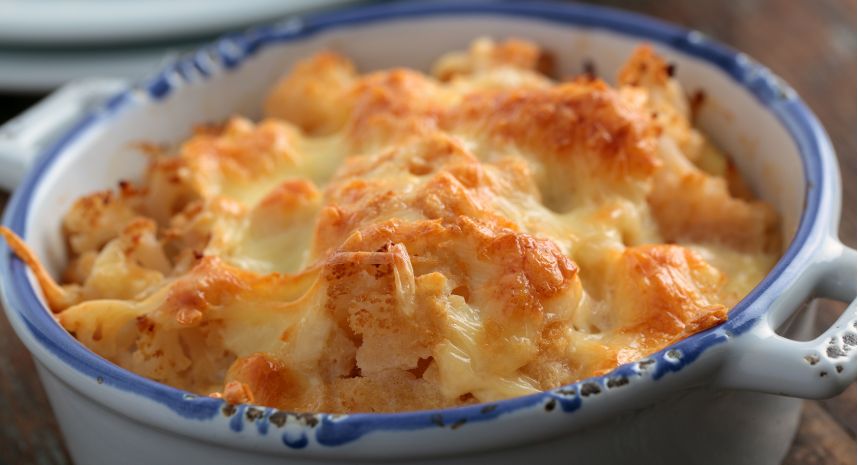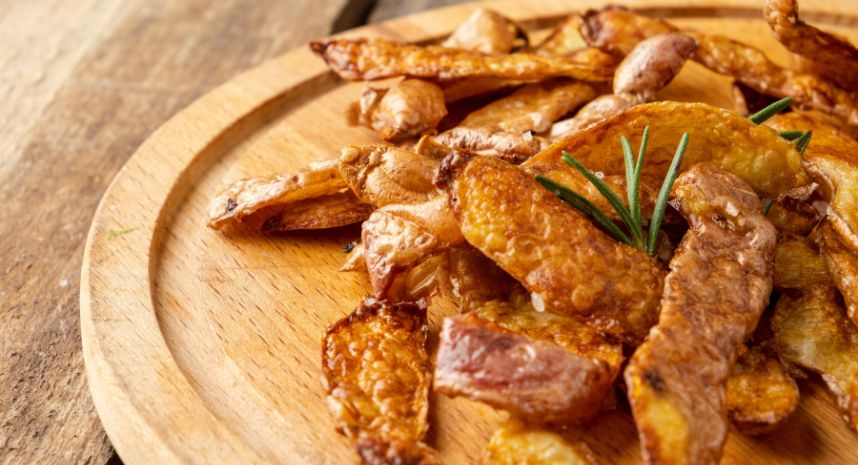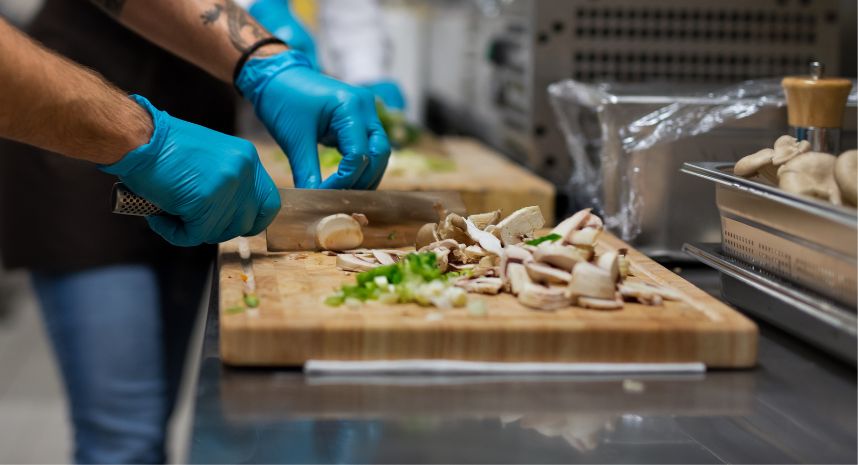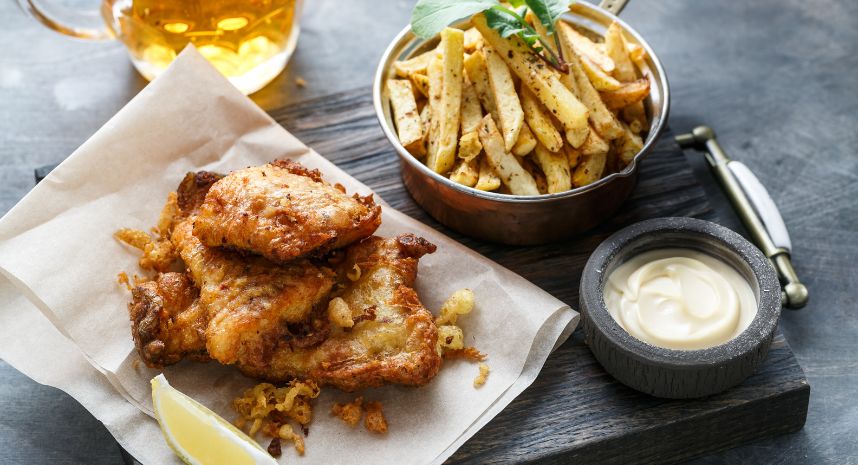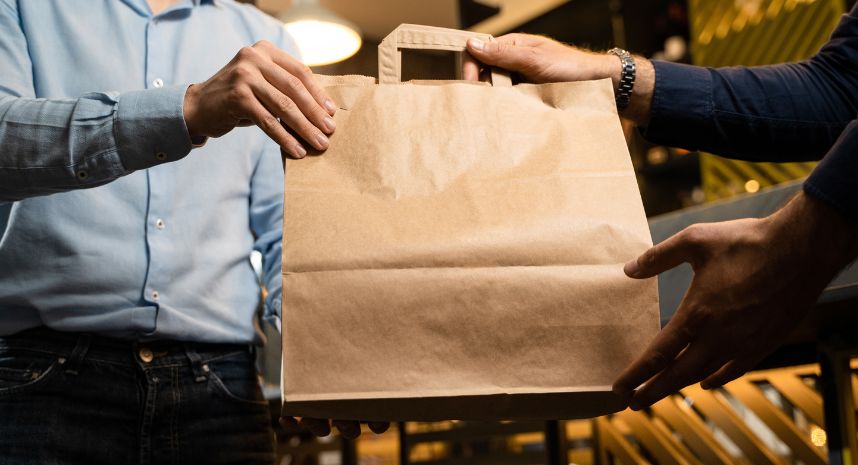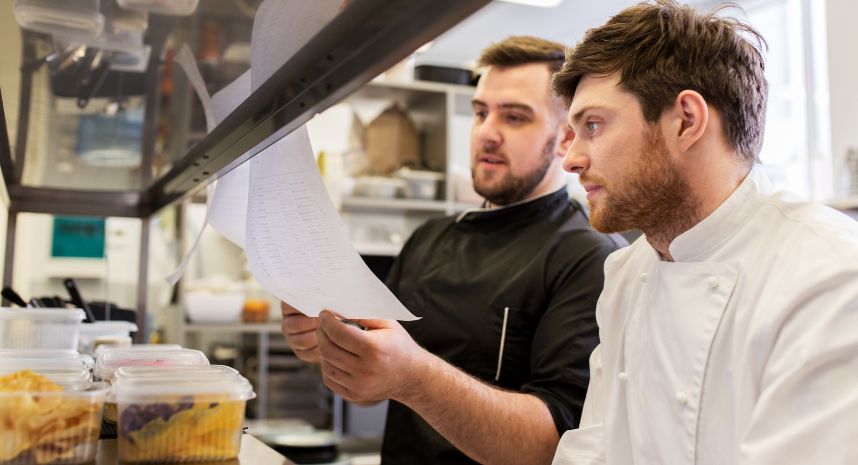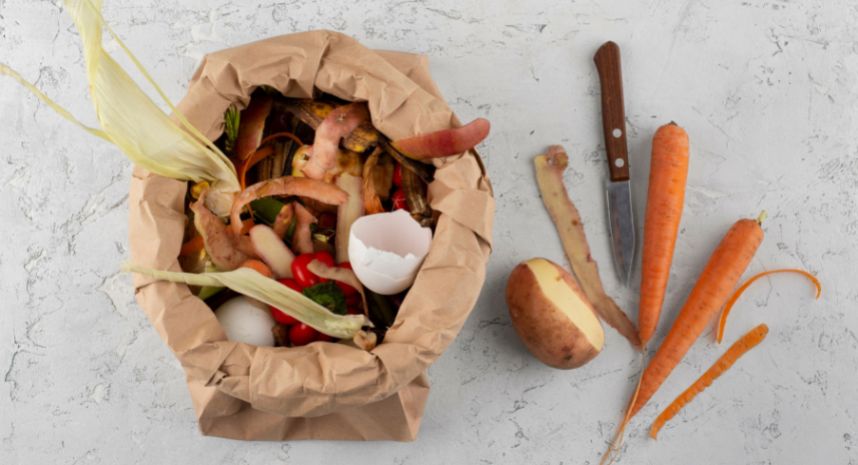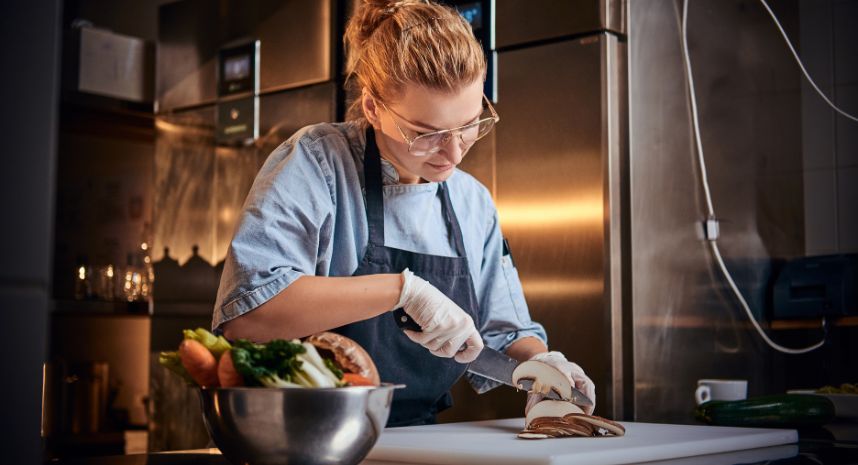Top up rather than plating too much
Analysing sites’ plate waste may highlight that your portion sizes are too big for some items such as chips, peas, salad or Sunday roast trimmings, and you can cut costs and waste by reducing them. Using crockery, such as buckets for chips and small pots for sauces, can help chefs deliver more consistency in portion sizes and reduce quantities, as well as help make a positive visual impact on customers with dish presentation.
Bidfood’s Development Chef Craig says: “Asking guests if they want a top up of chips or Sunday roast trimmings, so they can have more if wanted but isn’t wasted with too much on the plate, is a good way of helping to manage waste.”
“Offering a top up of chips or Sunday roast trimmings avoids too much on the plate and is a good way of helping to manage waste.”








